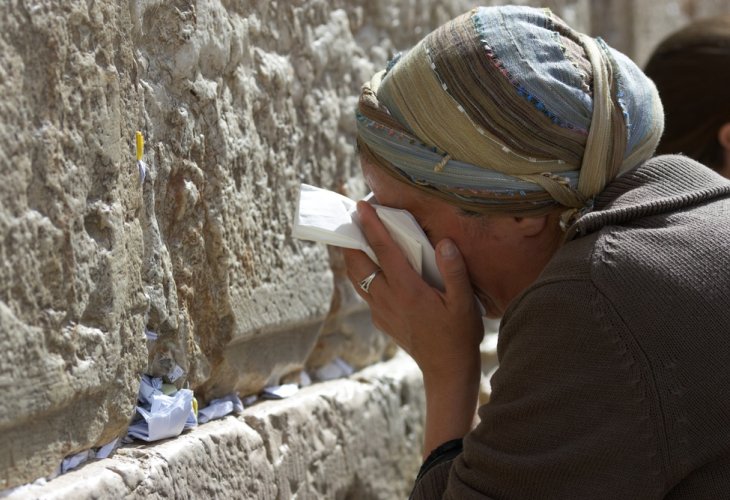Faith
The Power of Prayer: Why Every Jewish Prayer Leaves a Lasting Impact
No heartfelt prayer is ever wasted — its blessings may appear for us, our children, or future generations
 (Photo: shutterstock)
(Photo: shutterstock)Rabbi Binyamin Birenzweig, a teacher at the “Imrei Moshe” Yeshiva in Jerusalem and the chief editor of the Mishnah Berurah “Dirshu” edition, speaks to those who yearn and hope for salvation.
“People pray and want to see immediate results, and when they don’t, they despair. One must know that a sincere prayer from the heart is always accepted and effective. If not now, then for our children and descendants. God knows what is truly good for us, and when it is best that a Jew’s prayer take effect.”
The Talmud teaches that no prayer goes unanswered or without impact in Heaven: “Rabbi Chanina said: Anyone who prolongs his prayer, his prayer is not returned empty” (Berachot 32b). Sometimes, we merit seeing the results very quickly, and sometimes only after a long time. Sometimes the prayer is fulfilled completely, and sometimes only partially, as the Midrash teaches: “Great is prayer before the Holy One, blessed be He. Rabbi Elazar said: If you want to know the power of prayer — if it does not accomplish all, at least half it accomplishes” (Devarim Rabbah 8:1).
Sometimes prayer is answered, but the blessing reveals itself in a way different from what we expected, ultimately for our greater benefit. Therefore, even if we do not yet see the salvation before our eyes, we must know that God hears prayer, and it certainly has an effect.
“I can do worse things than the police!”
In the book Maaseh Ish, which records the life and conduct of the Chazon Ish (Rabbi Avraham Yeshaya Karelitz), there is a special story that illustrates the power of prayer.
There was once a young yeshiva student in Bnei Brak who was drafted into the army. During his service, he befriended a secular young man from one of the kibbutzim. One time, both were given leave for Shabbat. Since their base was in central Israel, the religious student said to his secular friend: “Why travel so far up north? Spend Shabbat with me.” His friend agreed.
On Shabbat morning, the religious boy said to his kibbutz friend:
“I’m going to pray. Come with me to synagogue.”
The friend replied: “To be honest, I don’t even know what prayer is, but I’ll come with you.”
Another Shabbat he came again, and this time he himself said he wanted to pray. Slowly, step by step, he began drawing closer to Judaism.
His father, however, was horrified to see that his son was becoming religious. He himself had grown up in a religious home and even studied as a boy alongside the Chazon Ish. Angry about his son’s growing observance, he stormed to the Chazon Ish and accused:
“Your people stole my son!”
The Chazon Ish calmly replied: “When someone’s child is stolen, they go to the police.”
Furious, the father threatened: “I know how to do worse things than the police!”
The Chazon Ish answered: “Then go ahead and do them.”
In a rage, the father shouted: “Do you know how many tears my father shed that I should remain religious, and it didn’t help him? It won’t help you either!”
At this, the Chazon Ish leapt up and declared: “Tears are never wasted! If they did not help the son, they will help the grandson.”
Indeed, after some time, that very son became fully observant, became engaged to a woman who had also returned to Judaism, and together they built a Torah home.
On this story, Rabbi Birenzweig comments: “This is what the Chazon Ish himself wrote in his letters: Prayer is a staff of strength in the hand of every Jew. No prayer is ever in vain. Not a single word of supplication or plea that a Jew utters remains without effect. Whether today, tomorrow, this year, or many years later; whether for the one who prayed, or for his descendants — every prayer is heard, and every prayer works. This truth must be deeply embedded in the consciousness of every Jew.”

